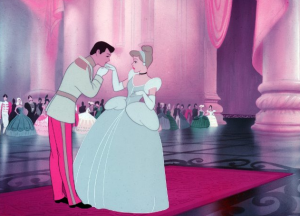
Courtesy of imdb.com
Growing up, children are exposed to many fairy tales. Among them are Cinderella, a story about a girl who is trapped in a horrible life with her evil stepmother and sisters and whose Prince Charming is her only savior, and Snow White, a tale of one’s true-love kiss.
Both of these fairy tales condition children to believe that finding love will be easy. Cinderella’s Prince Charming, for example, came to her rescue simply because she looked beautiful. People look for love and sometimes expect it to appear immediately as it does in the stories our parents read us or that we watched on TV.
There are 19-year-olds desperate to find love, failing to realize they still have an entire life ahead of them. At 19, students have graduated from high school and may only be in their first or second year of college. Still, many of them start regretting their past break ups because they believe their ex might have been “the one.”
This regret stems from a feeling of uncertainty and desperation toward love. Sometimes people go back to their ex just because they are used to having someone by their side. If they had a girlfriend or boyfriend for two years they might have grown accustomed to receiving unconditional love and attention.
After a break up, the doubts begin and the text messages roll in. Before you know it, you’re back to that one person you said you hated and would never talk to again — that girl who only wanted your money or that one guy who cheated on you — just because you feel that you need to find “the one” at the age of 19. Everything would be much easier if, when we were young, we weren’t exposed to the unrealisticness of fairy tales.
Fairy tales are supposed to teach valuable lessons, but the depiction of love they promote is completely untrustworthy and extremely misleading. There are 30-year-old single women who still have not found love, yet no one has bothered to write a fairytale about them to give them hope that love is still out there.
Snow White and Cinderella, among many tales, are stories about young ladies whose Prince Charmings come into their lives quite unexpectedly. The title characters are young, in their late teens or early 20’s, so what message does this send to someone who still hasn’t found the love of his or her life at the age of 30 or later?
Fairy tales focus on the early years of life, implying that those years are the only ones in which love can be found. Because of that message, teens want to find love too quickly, which can make them second-guess decisions they make with respect to their exes. The message can also give adults a false sense of desperation.
Fairy tales may teach good lessons about lying, sharing, friendship, selflessness and humbleness, but the stories approach love in an exceptionally poor manner. They tell us that we need to find our Prince Charmings by the time we are 20 years old, which is rarely the case in reality. If we can ignore that ideology, then maybe we can focus on the present and all of the wonderful people who currently surround us.
Maria is a member of the class of 2015.